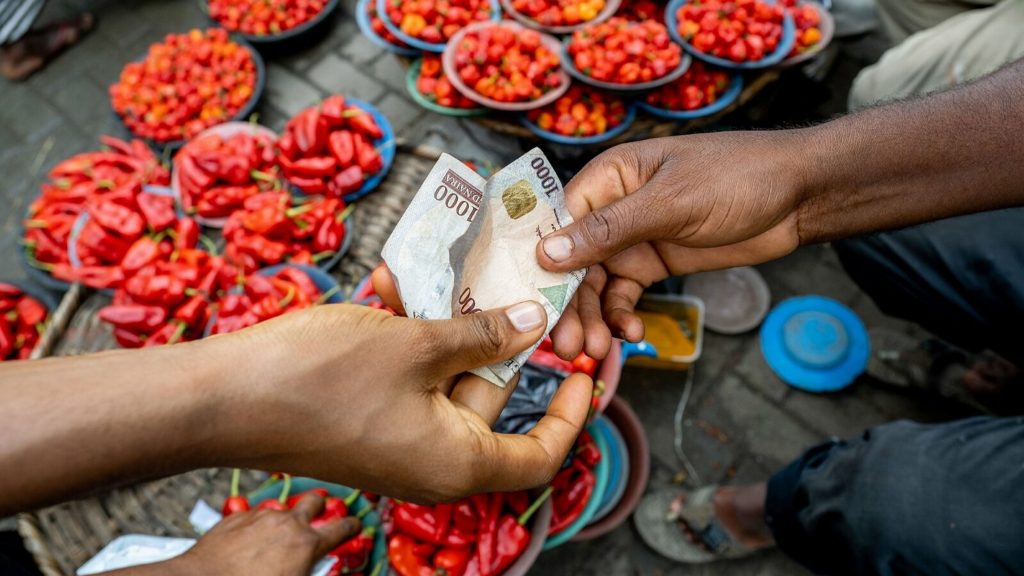The National Bureau of Statistics (NBS) has disclosed in its consumer price index (CPI) report released on Monday, that Nigeria’s inflation rate hit an all-time high of 28.92% in December 2023, as prices of good and services continue to soar.
The CPI measures the rate of change in prices of goods and services of a country, and NBS’s latest report shows that the country has experienced high inflation rate for the twentieth consecutive time in 2023 alone.
According to NBS, the December inflation shows an increase of “0.72% points when compared to the November 2023 headline inflation rate” which stood at 28.20%.
The CPI report reads in part:
“On a year-on-year basis, the headline inflation rate was 7.58% points higher compared to the rate recorded in December 2022, which was 21.34%,” the report reads.
“This shows that the headline inflation rate (year-on-year basis) increased in December 2023 when compared to the same month in the preceding year (i.e., December 2022).”
“On a month-on-month basis, the Food inflation rate in December 2023 was 2.72%, this was 0.30% higher compared to the rate recorded in November 2023 (2.42%),” the agency said.

“The rise in Food inflation on a Month-on-Month basis was caused by a rise in the rate of increase in the average prices of Oil and fat, Meat, Bread and Cereals, Potatoes, Yam & Other Tubers, Fish and Milk, Cheese, and Egg.
“The average annual rate of Food inflation for the twelve months ending December 2023 over the previous twelve-month average was 27.96%, which was a 7.02% points increase from the average annual rate of change recorded in December 2022 (20.94%).”
“In December 2023, Food inflation on a Year-on-Year basis was highest in Kogi (44.73%), Kwara (41.33%), and Imo (39.54%), while Bauchi (27.49%), Jigawa (27.98%) and Sokoto (28.72%) recorded the slowest rise in Food inflation on Year-on-Year basis.
“On a Month-on -Month basis, however, December 2023 Food inflation was highest in Bayelsa (4.42%), Ogun (4.11%), and Enugu (4.03%), while Nasarawa (1.48%), Delta (1.65%) and Niger (1.67%) recorded the slowest rise in inflation on Month-on-Month basis.”
The persistent inflation rates in Nigeria has been attributed to increased logistics costs and the Naira’s depreciation, among other factors.


